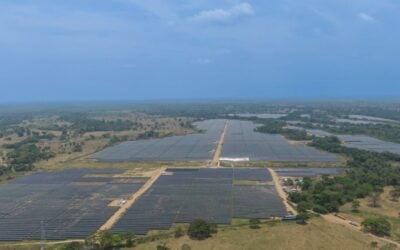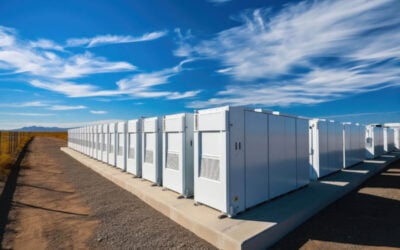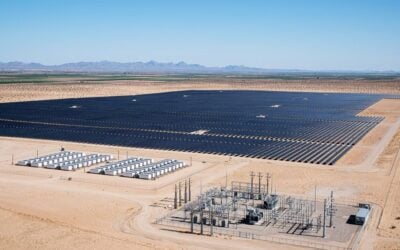
Netherlands’ climate minister has allocated €100 million in subsidies to the deployment of ‘time-shifting’ battery storage with solar PV projects for next year, an acceleration of a larger €400 million-plus programme.
Minister for climate and energy policy and D66 party leader Rob Jetten announced the subsidy package as part of its ‘Multi-Year Program Climate Fund 2025’ while presenting the Spring Memorandum 2024 this week.
Enjoy 12 months of exclusive analysis
- Regular insight and analysis of the industry’s biggest developments
- In-depth interviews with the industry’s leading figures
- Annual digital subscription to the PV Tech Power journal
- Discounts on Solar Media’s portfolio of events, in-person and virtual
It is one of the current government’s last moves, after elections for the House of Representatives in June last year saw the right-wing anti-immigration PPV become the largest party in the House, with a coalition still being formulated.
The €100 million (US$106 million) allocation is part of a €416 million package for PV co-located battery energy storage system (BESS) technology that was initially to total €41.6 million a year, starting in 2025, for ten years. The 2025 programme is set to open on 1 January 2025, and more details will be released to the House later this year.
The move by Jetten sees its first year’s total more than double, and the government has also reserved €200 million for the following year, meaning a deployment of the funds in the first two two years over seven times’ quicker than initially planned. The €200 million will be adjusted based on the learnings from the initial €100 million.
Operating subsidy of €0.14-29 per kWh
The funds will provide an operating subsidy to projects for each kWh of energy they discharge into the electricity market during peak demand hours when there is typically a shortage of renewable energy generation.
The initial estimate for the subsidy is €0.14-29 per kWh of energy discharged. Independent research and consultancy organisation CE Delft has been heavily involved in the analysis of the scheme until now.
The scheme is open to all sizes of technologies, including BESS co-located with rooftop solar PV as well as grid-scale plants and ‘batteries of different sizes are allowed to participate’. However, an explanation of the scheme from the government includes some relatively strict criteria.
A big one is that the combined installation of solar PV and BESS may not supply electricity between 9 am and 5 pm from May to September, instead reserving those hours to charge the BESS with solar for discharging to the grid between 5 pm and 9 am. The BESS can also participate in other electricity market avenues during those off-peak hours.
The government has also indicated that the BESS will need to obtain at least 75% of its energy from the co-located generation. That compares to the effective 100% requirement that solar-plus-storage projects used to need in order to qualify for an investment tax credit (ITC) in the US, and still do for Germany’s Innovation Tender.
The subsidy is needed because BESS co-located with PV are ‘not profitable’, the government said. It expects the €100 million to be able to support the deployment of 160-330MW of BESS.
Building a business case for BESS in the Netherlands has been a major challenge for the industry, as detailed in interviews with developer-operator SemperPower (Premium access) and developer Lion Storage, with SemperPower saying that virtually no new grid-scale BESS would come online in 2024.
Without subsidies, transmission system operator TenneT expects about 2GW of BESS to be online in the Netherlands by 2030, much lower than the 9GW it forecasts it needs.
See Jetten’s letter announcing the accelerated deployment of the funds (in Dutch) here.






